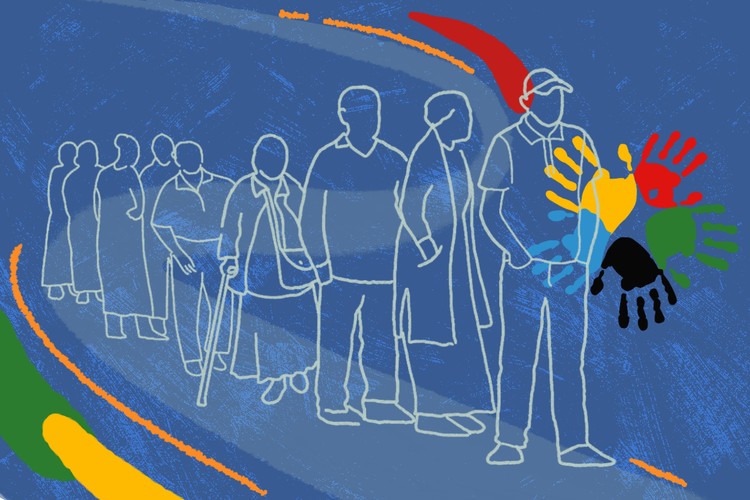
20 November 2025
SASSA expects to save more than R341-million in the next financial year after about 35,000 grants were ended after recent reviews. Illustration: Lisa Nelson
The South African Social Security Agency (SASSA) expects to save more than R341-million in the next financial year after thousands of social grants were ended following recent eligibility reviews.
On Wednesday, SASSA and the Department of Social Development (DSD) briefed Parliament’s portfolio committee on social development on the progress of grant reviews and the measures being implemented to fix major vulnerabilities in the Social Relief of Distress (SRD) grant system. Officials said the savings stem from strengthened verification checks, new conditions imposed by National Treasury, and ongoing interventions to close critical security gaps in the SRD application platform.
Earlier this year, DSD told Parliament that Treasury had introduced stricter conditions for SASSA’s budget allocation, including monitoring people’s income every month using bank records and government databases, expanded verification checks, and submitting progress reports.
The DSD has been allocated R260-billion for 2026/27 and R271-billion for 2026/27 for social assistance at a time when nearly 45% of the population depends on social grants. Finance Minister Enoch Godongwana also recently announced that the SRD grant will be extended until March 2027.
SASSA executive manager for grant operations Brenton van Vrede told MPs that while SASSA had complied with the requirement for biannual bank and credit bureau checks for beneficiaries, Treasury had now amended these conditions to require checks at the point of registration.
“At this stage, our systems are not geared to do this on registration,” he said.
A new condition requires SASSA to conduct additional income and asset checks on applicants and beneficiaries, though Van Vrede said the specifics of this requirement remain “unclear”.
He added that biometric verification for online applications for all grants is expected to launch by the end of November.
Following Treasury’s conditions for SASSA to implement grant reviews, Van Vrede said about 35,000 grants were suspended or lapsed, mainly among Child Support Grant and Disability Grant recipients. From these lapsed grants alone, SASSA expects to save R28.5-million a month, R170.7-million by the end of this financial year, and R341.4-million after a full year.
For the first half of the year, SASSA initiated more than 260,000 reviews. About 201,000 beneficiaries have completed theirs. Others risk suspension if they fail to come forward. Van Vrede said 8,600 Older Persons and Disability grant beneficiaries had their grant values reduced after income reviews.
The committee was also briefed on the findings of an investigation into the security of the SRD online application system. The inquiry followed findings by two Stellenbosch University students who discovered that the platform was wide open to cybercriminals, with large numbers of fraudulent applications being filed using the ID numbers of people who had just turned 18.
Social Development Minister Nokuzola Tolashe said the investigation identified “weak encryption and unauthorised application programming interface, fraudulent websites mimicking SASSA’s official platform, and beneficiary payment disruption.”
She said key recommendations were for SASSA to strengthen authentication, combat fraudulent websites, enhance verification and payment security, and improve IT governance.
“I can assure you that SASSA has been hard at work in implementing the recommendations so that we can safeguard public resources entrusted to us,” said Tolashe.
SASSA acting chief information officer Jabulani Makondo said several high-risk vulnerabilities had been resolved, including weak encryption standards that previously exposed applicants’ ID numbers and bank details to interception.
“We have addressed this to protect the personal information sent to the SRD grant system as people apply,” he said.
Makondo said the agency had identified more than 150 websites mimicking SASSA’s SRD platform and had successfully shut down about 70 of them. He said the agency is implementing continuous quarterly security assessments because “our systems are not static” and new vulnerabilities can emerge when software or configurations change.
MPs raised concerns about beneficiaries without cellphones missing review notifications, system downtime at local offices, and cases where outdated government databases lead to incorrect rejections.